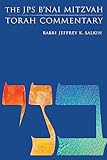Parashat Kedoshim 5757 / פָּרָשַׁת קְדשִׁים
/ 3 Iyyar 5757
Parashat Kedoshim is the 30th weekly Torah portion in the annual Jewish cycle of Torah reading.
Torah Portion: Leviticus 19:1-20:27
Kedoshim (“Holy”) opens by instructing the Israelites to be holy. It details dozens of laws regulating all aspects of life, including observing Shabbat, loving one’s neighbor, and leaving portions of a field for the poor. It ends by detailing punishments for certain types of idolatry and sexual misconduct. [1]
Full Kriyah
Haftarah for Ashkenazim: Ezekiel 22:1-19 · 19 p’sukim
Haftarah for Sephardim: Ezekiel 20:2-20 · 19 p’sukim
Triennial year 2
- 1: 19:1-4 · 4 p’sukim
- 2: 19:5-10 · 6 p’sukim
- 3: 19:11-14 · 4 p’sukim
- 4: 19:15-18 · 4 p’sukim
- 5: 19:19-22 · 4 p’sukim
- 6: 19:23-32 · 10 p’sukim
- 7: 19:33-37 · 5 p’sukim
- maf: 19:35-37 · 3 p’sukim
Haftarah for Ashkenazim: Ezekiel 22:1-19 · 19 p’sukim
Haftarah for Sephardim: Ezekiel 20:2-20 · 19 p’sukim
Alternate Haftarah: Amos 9:7-15 · 9 p’sukim
Commentary and Divrei Torah
Kedoshim: The JPS B’nai Mitzvah Torah Commentary by Rabbi Jeffrey K. Salkin (paid link)
List of Dates
Parashat Kedoshim is read in the Diaspora on:References
- Parashat Kedoshim from Sefaria.org
- Sefaria, Inc.
- Kedoshim (Leviticus 19:1-20:27) and Haftarah (Ezekiel 22:1-19): The JPS B’nai Mitzvah Torah Commentary (JPS Study Bible) (paid link)
- Rabbi Jeffrey K. Salkin, Jewish Publication Society, 2017
- The Chumash: The Stone Edition (Artscroll Series) (paid link)
- Nosson Scherman, Mesorah Publications, 1993
- A Complete Triennial System for Reading the Torah
- Committee on Jewish Law and Standards of the Rabbinical Assembly, 1988
- Modification of the Triennial Cycle Readings for Combined Parashot in Certain Years
- Rabbi Miles B. Cohen, 2020
- Haftarot for a Triennial Cycle Torah Reading
- Avram Israel Reisner, 2014
When you buy a book using a link on this page, we receive a commission. Thank you for supporting Hebcal.
